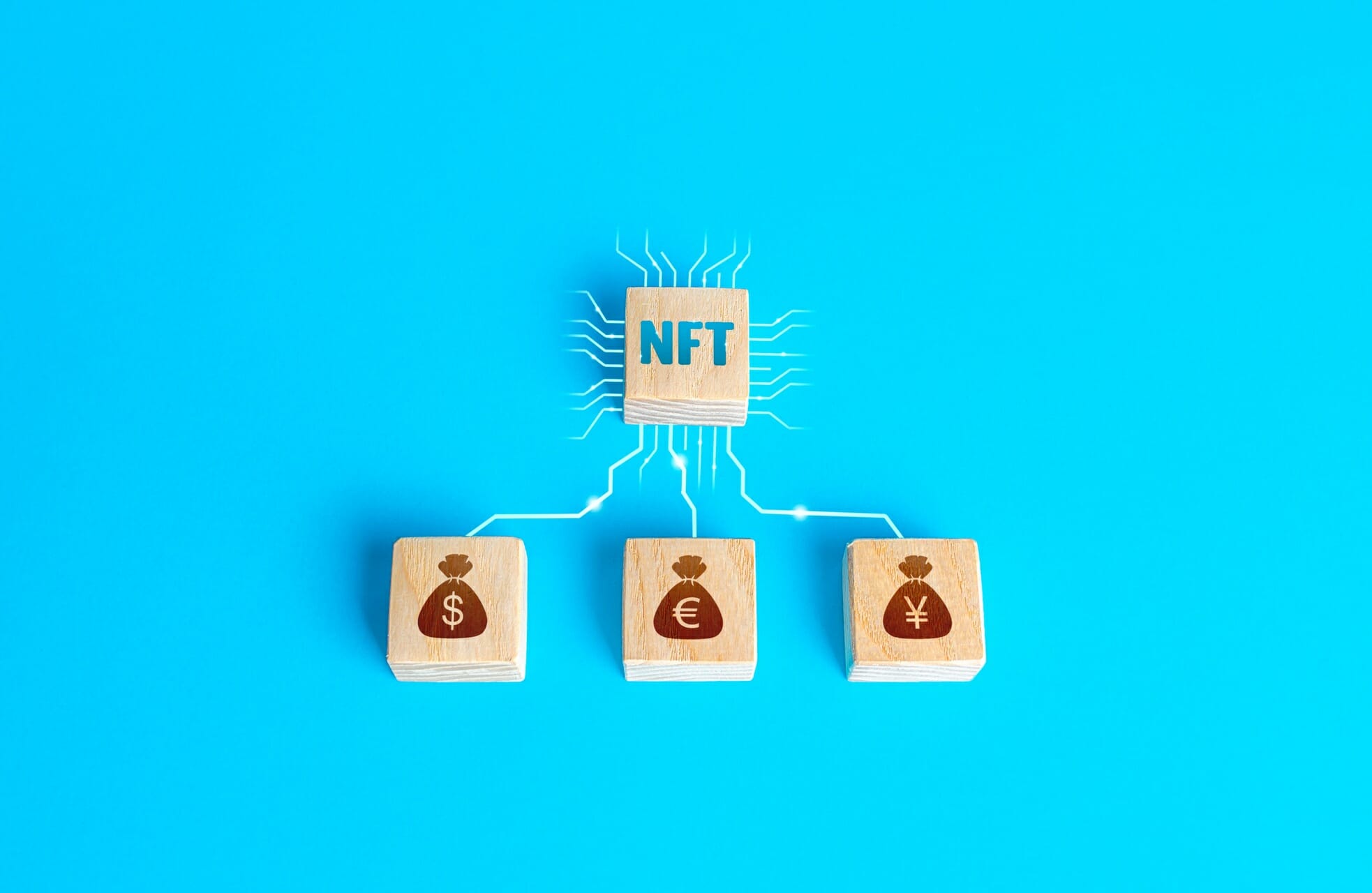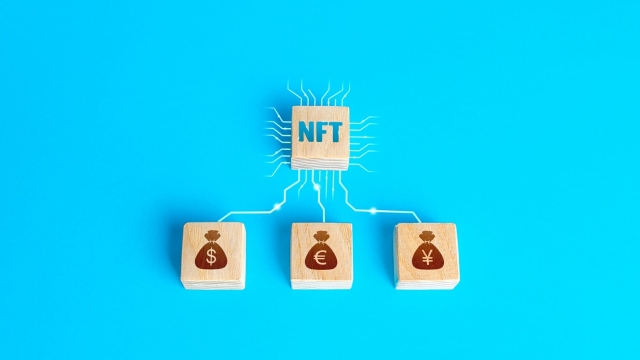
In recent years, the digital landscape has been dramatically transformed by a phenomenon known as NFTs, or non-fungible tokens. These unique digital assets have captured the imagination of artists, collectors, and investors alike, unlocking new avenues for creativity and ownership in the virtual world. As we delve into the fascinating realm of NFTs, we will explore their significance, the technology behind them, and the vibrant community that has emerged around them.
NFTInsider stands at the forefront of this dynamic sector, providing daily insights into the world of NFTs, the metaverse, and the evolving Web3 ecosystem. With expert commentary and up-to-date news, NFTInsider serves as a vital resource for anyone looking to navigate the complexities and opportunities presented by these digital collectibles. Join us as we embark on a journey to uncover what makes NFTs a revolutionary force in the digital economy.
Understanding NFTs
Non-fungible tokens, or NFTs, have revolutionized the way we perceive ownership in the digital realm. Unlike cryptocurrencies such as Bitcoin or Ethereum, which are interchangeable and can be traded on a one-to-one basis, NFTs represent unique digital assets. Each NFT is distinct and cannot be replicated, making it ideal for representing ownership of art, music, collectibles, and even virtual real estate. This uniqueness is secured through blockchain technology, ensuring authenticity and provenance, which are critical in establishing trust in the digital marketplace.
The surge in popularity of NFTs can be attributed to their ability to empower creators and provide new revenue streams. Artists, musicians, and content creators can tokenize their work, allowing them to sell directly to consumers without the need for intermediaries. This shift not only democratizes access to art and culture but also enhances the connection between creators and their audiences. As NFTs gain traction, they also enable fans to own a piece of their favorite artists’ work, creating a new form of engagement and community building around shared interests.
Moreover, NFTs are expanding the concept of ownership beyond physical boundaries. In the metaverse—an ever-evolving digital universe—NFTs serve as virtual assets that can represent anything from avatar customizations to virtual land. This integration into virtual ecosystems is paving the way for innovative experiences and economies. As more individuals and businesses explore these digital landscapes, the role of NFTs is set to grow, leading to a future where digital ownership is as valued as its physical counterpart.
The Rise of the Metaverse
The metaverse is quickly transforming from a mere concept into a vibrant digital reality, capturing the imagination of businesses, creators, and users alike. This virtual universe merges augmented reality, virtual reality, and blockchain technology to create immersive environments where users can interact, work, and play. The growth of the metaverse has been influenced by advancements in technology and a shift in consumer behavior, as more individuals seek engaging online experiences that offer a semblance of reality.
Find Out More
As the metaverse expands, it presents unique opportunities for creators and entrepreneurs. Digital real estate is becoming a lucrative market, with virtual land being bought and sold in unprecedented ways. This has given rise to innovative business models where companies can establish a presence in the metaverse, host events, and create interactive experiences that attract audiences. The integration of NFTs into this space further enhances the potential for ownership and uniqueness of digital assets, allowing users to buy, sell, and trade items within these virtual worlds.
Moreover, the rise of the metaverse is also reshaping social interactions and communities. Users can connect with like-minded individuals from around the globe, attend concerts, and engage in various activities that transcend physical limitations. This new digital frontier fosters creativity and collaboration, paving the way for a future where the lines between the digital and physical worlds continue to blur, making the metaverse a central hub for cultural and economic activities.
Exploring Web3 Technologies
Web3 technologies represent a fundamental shift in how we interact with the internet, moving from centralized platforms to more decentralized solutions. This evolution is driven by the need for greater user ownership, privacy, and control over personal data. At the core of Web3 is blockchain technology, which enables transparent and secure transactions without the need for intermediaries. This decentralized approach not only empowers individuals but also fosters a more open and inclusive digital economy.
One of the most significant aspects of Web3 is its ability to facilitate the creation and trade of non-fungible tokens, or NFTs. These unique digital assets have revolutionized the way we think about ownership and value in the digital realm. Artists, musicians, and creators can now tokenize their work, providing them with new revenue streams and a direct connection to their audiences. By leveraging smart contracts on blockchain platforms, creators can also ensure they receive royalties and benefits every time their work is resold, promoting long-term value in digital creations.
As we explore the potential of Web3, it becomes clear that its impact extends far beyond NFTs. Innovations such as decentralized finance, governance, and identity solutions are reshaping various industries and creating exciting new opportunities. By harnessing the power of community-driven development and open-source technology, Web3 is set to disrupt traditional business models and create a more equitable online ecosystem that prioritizes user agency and trust.
NFT Market Trends
The NFT market is undergoing rapid evolution, characterized by fluctuating demand and novel applications across various sectors. Artists and creators are increasingly recognizing the potential of NFTs to monetize their work directly, bypassing traditional intermediaries. This shift has led to an influx of unique digital art and collectibles, attracting both established and emerging artists eager to capitalize on the burgeoning market.
Furthermore, the integration of NFTs into the gaming industry has emerged as a significant trend. Blockchain gaming is allowing players to own their in-game assets in a verifiable manner, creating new economic models and enhancing player engagement. Companies are exploring play-to-earn frameworks, where players can earn genuine value for their time and effort, thus bridging entertainment and investment.
Additionally, the rise of marketplaces and platforms dedicated to NFTs has fostered broader participation in this digital landscape. NFTInsider highlights how these platforms are not only enabling transactions but also educating users about the intricacies of NFTs, metaverse, and Web3. As more individuals and brands enter the space, the focus on usability, sustainability, and security will likely define the future trends in the NFT ecosystem.
Future of Digital Assets
The future of digital assets is poised for exponential growth as technology continues to evolve and integrate deeper into our daily lives. NFTs, as unique digital representations of ownership, are set to redefine not just art and collectibles but also industries like gaming, music, and real estate. This transformation will make it essential for businesses to embrace this new paradigm, offering consumers engaging and interactive experiences that were previously unimaginable.
Moreover, as regulatory frameworks around NFTs and digital assets become clearer, we can expect increased mainstream adoption and innovation. With major brands and influencers stepping into the NFT space, the potential for digital ownership and trading will expand, creating new revenue streams and opportunities for creators and consumers alike. As platforms like NFTInsider provide insights and updates, the knowledge surrounding NFTs will continue to grow, fostering a more informed community.
Finally, the convergence of NFTs with other emerging technologies, such as augmented reality and the metaverse, will further enhance their utility and appeal. This blend will allow for immersive experiences where users can showcase their digital collections in virtual environments, thus enhancing the value proposition of owning NFTs. As this ecosystem develops, we can anticipate a vibrant future where digital assets are seamlessly integrated into both personal and professional realms, making them an indispensable part of our digital lives.





